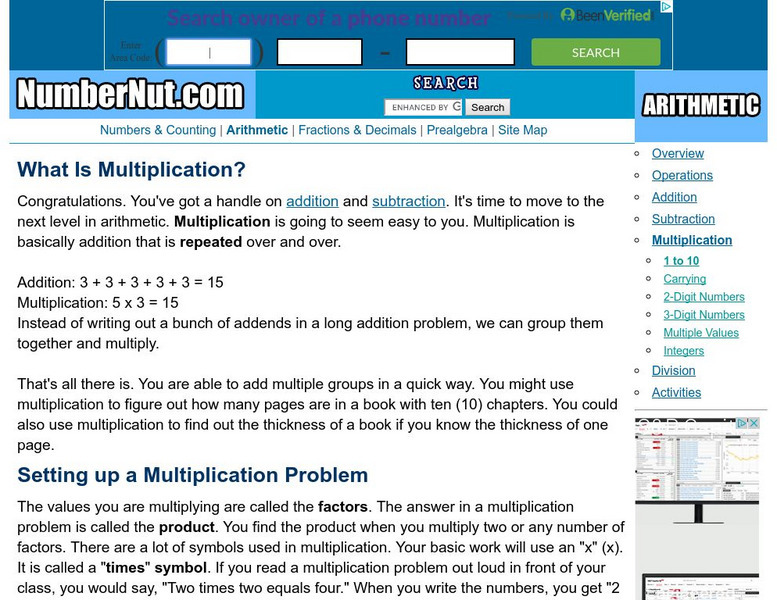Math Playground
Math Playground: Multiplication Chart
This is an interactive multiplication chart for 0 to 9, 1 to 10, or 1 to 12. Students can use different colors to highlight within the chart for pattern recognition.
CK-12 Foundation
Ck 12: Elem Math: Moving the Decimal Point Multiplying by Powers of 10
[Free Registration/Login may be required to access all resource tools.] For this learning module, students practice finding how many places to move the decimal point when multiplying by powers of 10. Includes video demonstrating a sample...
Study Pad
Splash Learn: Multiply Decimals by Power of 10
[Free Registration/Login Required] Multiply decimals (up to hundredths place) by a power of 10. The focus of the Multiply Decimals by a Multiple of 10 Worksheet is the pattern in placement of the decimal digit in the product, when a...
K-5 Math Teaching Resources
K 5 Math Teaching Resources: Using Number Patterns to Describe Multiples [Pdf]
An activity to work with patterns. Materials needed:10 x 10 blank and numbered grids and materials to make patterns.
NumberNut
Number Nut: Multiplication: 1 to 10
Demonstrates how to use repeated addition to multiply single-digit numbers, how to recognize number patterns that can help with understanding, as well as how to use a multiplication table for facts that need to be memorized. Includes...
Better Lesson
Better Lesson: Math With Maples
Patterns in division and multiplication can be found in nature, and an understanding of these patterns enables scientists to conduct systematic research.
Better Lesson
Better Lesson: Quotients Just the Basics
Just like multiplication, addition, and subtraction, division problems involve patterns and there are methodical ways in which manipulatives can be used to solve division problems with small dividends and divisors of 1 through 10.





